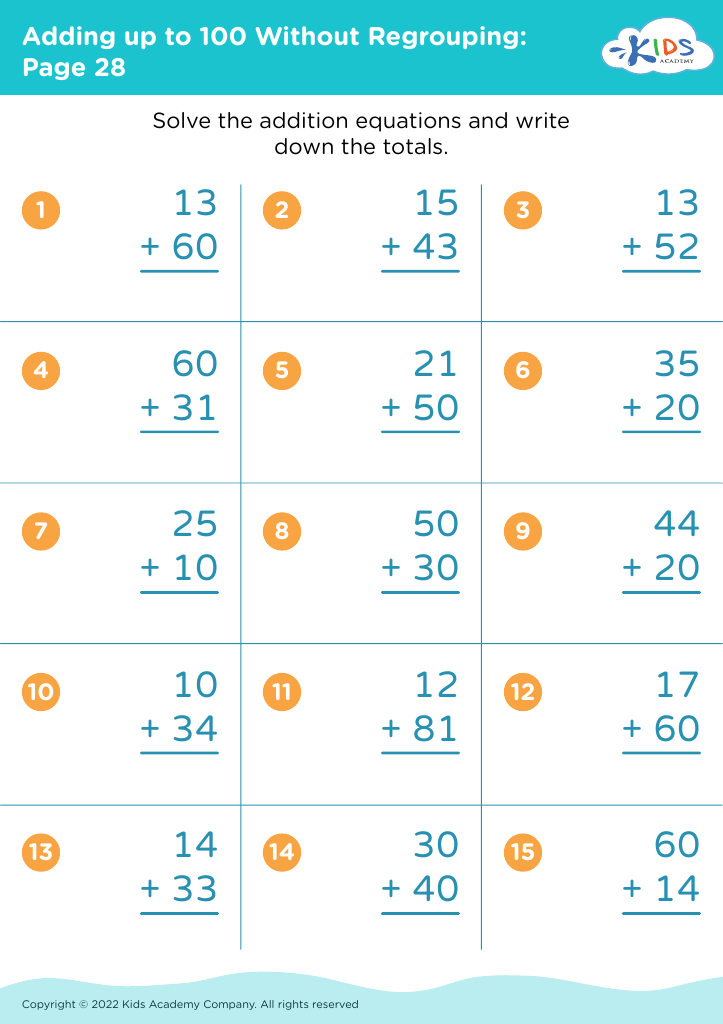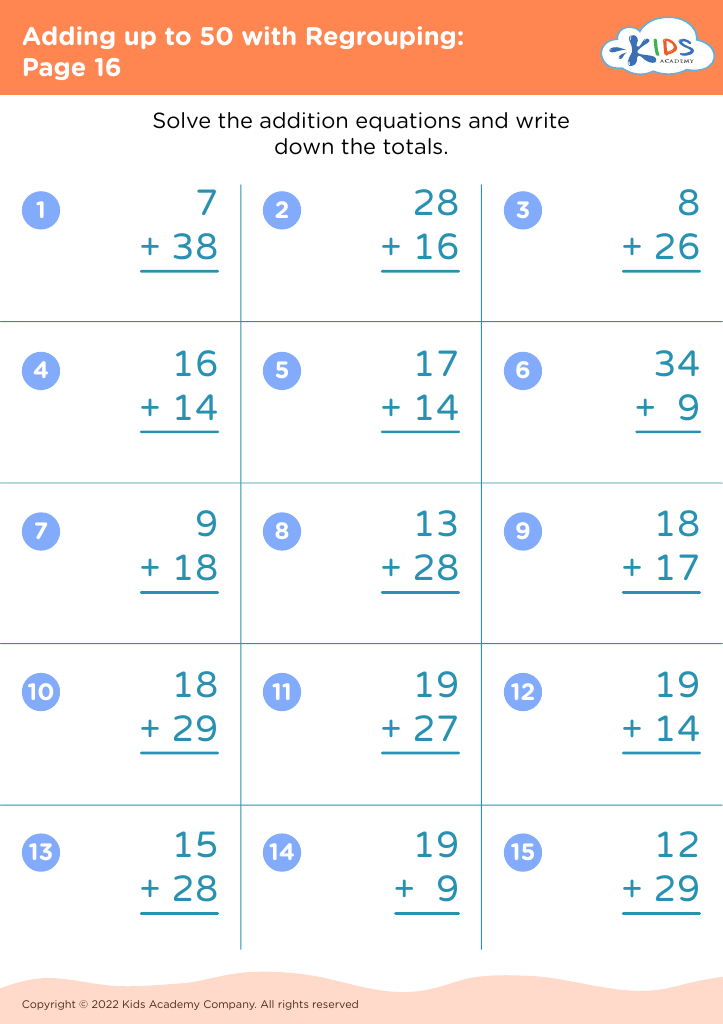Critical thinking development Addition Worksheets for Ages 3-9
3 filtered results
-
From - To
Unlock your child's potential with our Critical Thinking Development Addition Worksheets, designed for ages 3-9. These engaging, hands-on activities promote essential problem-solving skills through fun math challenges. Our worksheets encourage children to think critically about addition concepts, fostering their ability to analyze, evaluate, and apply mathematical strategies in everyday situations. Perfect for early learners, these resources blend creativity with cognitive growth, making math an exciting journey! Whether at home or in the classroom, these worksheets are ideal for nurturing a love for math while strengthening critical thinking skills. Download now and give your child the tools to thrive in their educational journey!
Critical thinking development is essential for children aged 3-9 as it lays the foundation for lifelong learning and problem-solving skills. During these formative years, children's cognitive abilities are rapidly evolving, and fostering critical thinking can significantly enhance their academic performance and social skills.
For parents and teachers, encouraging critical thinking enables children to analyze, evaluate, and create new ideas. This practice promotes curiosity and a love for learning, inspiring children to ask questions and seek answers independently. Additionally, critical thinking helps children navigate challenges, making them more resilient and adaptable in an ever-changing world.
Moreover, critical thinking nurtures effective communication skills. As children learn to articulate their thoughts and understand different perspectives, they become better collaborators and more empathetic individuals. This is crucial in classrooms and social settings, fostering teamwork and respect for diversity.
Investing in the development of critical thinking not only enhances children's immediate educational experience but also prepares them for future success. In a rapidly evolving job market, the ability to think critically and innovate is increasingly important. Therefore, parents and teachers should prioritize critical thinking from an early age to equip children with the tools they need for a bright future.




















